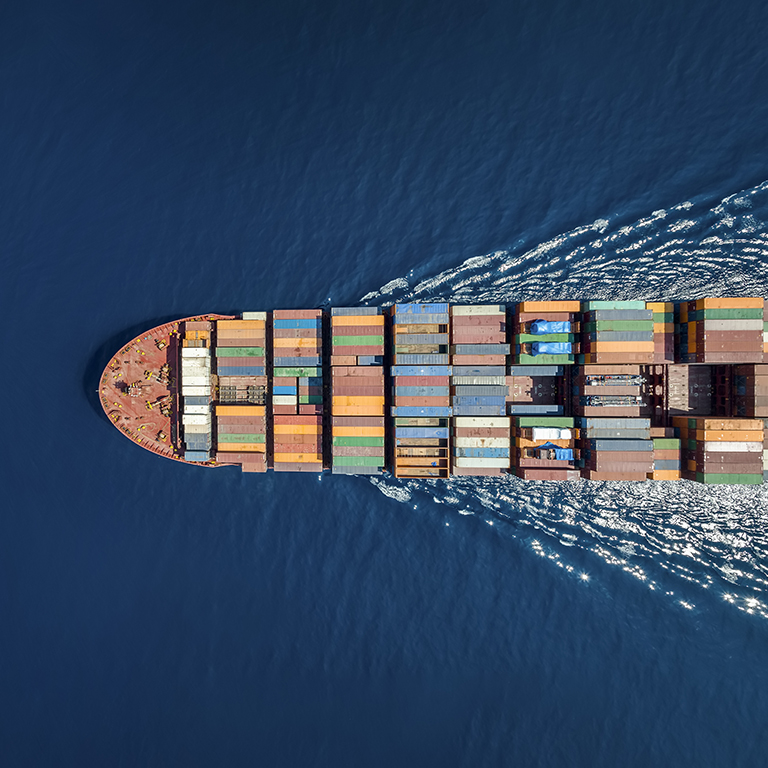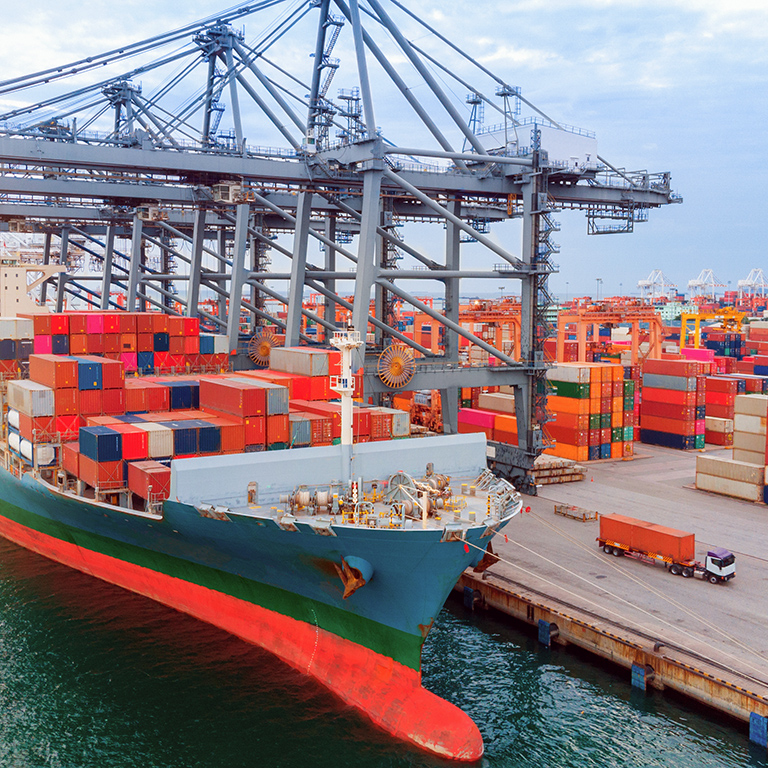
Marcus Baker
Global Head of Marine, Cargo and Logistics
-
United Kingdom
Digitalisation and customer expectations are driving existing industry stakeholders and new entrants to seek greater speed and control of end-to-end product delivery.
Our cargo and logistics team utilises the latest technology and risk management strategies to develop insurance programmes that cover the entire supply chain. Our aim is to provide you with greater risk understanding, visibility, and protection of your cargo shipments.
We continually innovate insurance programmes with digital solutions, data and analytics, facilities, and risk management services. And through our integrated claims management services, we help you reduce costs and improve claims recoveries.
We serve businesses of all sizes from multinational owners of product to small parcel companies, as well as global logistics providers. We have the scale, scope, and market presence to help you manage and mitigate your risks across the supply chain.

14/04/2025
Global trade uncertainty and supply chain risk — driven by geopolitical instability, climate change, and shifting trade policies — present challenges to cargo owners.

14/03/2025
Amid economic challenges, political instability and jumps in commodity prices, we examine reducing the risk of misappropriation, a key threat for cargo owners.

29/10/2024
In this episode Marsh leaders discuss the multiple risks that ports and terminals tend to face and how these could impact already vulnerable supply chains. They also share actions that organisations should consider as they seek to build more resilient port operations.
Any company that ships goods, products, or commodities by any type of transportation should consider cargo insurance.
Larger companies that regularly move high volumes of cargo and hold stock might benefit from an annual stock throughput policy. This type of insurance is flexible and covers all shipments throughout the year, so there is no need to purchase insurance for each shipment separately. It can be especially useful when the value of goods stored at factories or warehouses is below the deductible on their property insurance.
Smaller companies or those shipping less frequently might find it better to buy cargo insurance for each shipment individually. Cargo insurance can often be included additionally with their freight costs through the shipping carrier.
Cargo insurance premiums are based on two main factors: the value of goods being shipped and the level of risk (frequency and severity of losses) involved in transporting them.
Logistics providers are responsible for the arrangement and transportation of goods within the global supply chain. While insurance needs vary based on the specific activities and scope of each operation.
Logistics insurance products offer protection for all parties involved in the transport, storage, or arrangement of goods. This includes trucking companies, freight forwarders, warehouse operators, non-vessel owning common carriers (NVOCC), customs brokers, and freight brokers. Essentially, any entity that handles or manages goods during the supply chain process can benefit from logistics insurance coverage.
The valuation of logistics insurance products varies widely based on several factors, including the specific activities performed, policy limits, historical loss experience, contractual liabilities, applicable international conventions, whether the movement of goods is domestic or international, and the overall scale of operations. A key metric used in rating these insurance products is gross freight receipts of mileage, which is considered alongside other relevant exposure data to determine appropriate premiums.
Our global team serves clients of all sizes, including those with international operations seeking to spread risk worldwide. With specialists in every major insurance hub, we work directly with insurers across global markets to present risks and deliver results aligned with client goals. Our presence in key locations allows direct access to insurance capital worldwide. This approach allows us to have better oversight of client information, helps maintain consistent standards, and supports greater transparency. It also assists in identifying potential opportunities for insurance and reinsurance arbitrage and in optimising reinsurance structures when appropriate.

Global Head of Marine, Cargo and Logistics
United Kingdom

Global Sales Leader, Marine, Cargo & Logistics Practice

Global Head of P&I
United Kingdom

Managing Director of Global Digital Cargo, Marsh Canada
Canada

Head, Marine, Cargo & Logistics, UK
United Kingdom

Head, Marine, Cargo & Logistics Europe
Netherlands

Head, Marine, Cargo, & Logistics, Northwestern Europe and Switzerland
Belgium

Head, Marine, Cargo & Logistics, Eastern Mediterranean Region
Cyprus

Head, Marine, Cargo & Logistics, IMEA
United Arab Emirates

Head, Marine, Cargo & Logistics, US and Canada
United States

Head, Marine, Cargo, & Logistics, Latin America & The Caribbean
Brazil

Head, Marine, Cargo & Logistics, Asia
Singapore
Page Compliance ID